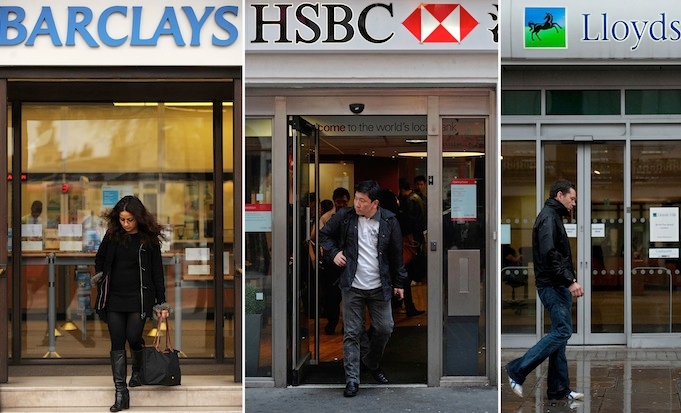Millions of current account customers are languishing on terrible rates. Now new research shows that the number of Britons switching accounts has hit its highest monthly level.
According to Bacs, the payments body, a total of 124,615 ditched their bank for pastures new in March, up 10 per cent compared to this time last year. Santander, Nationwide Building Society and Halifax were the biggest winners in terms of those switching in. Santander made a net gain of around 51,000 customers using the seven day switching service between July and September – far higher than any other provider.
Kevin Mountford, head of banking at MoneySuperMarket, said: ‘The latest current account switching figures are very encouraging and it’s great to see both a 20 per cent increase since the last quarter’s figures, as well as a 10 per cent annual uplift. But while the increase in figures is positive news, the number of switches is still comparatively small, given there are 65 million active current account holders in the UK.
More than 5,000 people were conned into sending planned payments to fraudsters’ bank accounts last year. Victims were fooled by emails asking them to divert payments into criminals’ accounts, leaving the genuine recipient unpaid. The number of cases of the scam – also known as ‘mandate’ or ‘invoice’ fraud – is up 71 per cent on the previous year. Losses in the UK totalled £126 million, according to police figures compiled for Radio 4’s You & Yours.
The Daily Mail reports that British workers have been warned that they are being robbed of decent pay rises by ultra-low levels of inflation. Official figures show that average weekly earnings were just 1.1 per cent higher in February than a year earlier. It was the weakest increase for 18 months and came as the Bank of England suggested companies are using the low level of inflation as an excuse to hold down pay.Ian McCafferty, a member of the central bank committee that sets interest rates, said: ‘It has become increasingly clear to me that the current low level of headline inflation is having a material impact on the pace of wage growth.’
Meanwhile, The Times reports that the owners of offshore companies holding £170 billion in British property are set to be unmasked in a crackdown on money laundering and tax evasion. David Cameron is expected to announce plans to lift the veil on anonymous shell companies that buy huge swathes of British real estate. While owning property through offshore companies is not illegal, it allows criminals to mask ownership and hide taxable assets as only the company’s name appears on public documents.
In other news, MPs, councillors and civil servants suspected of corruption are to be targeted by a new law proposed by the home secretary. Theresa May intends to establish an offence of ‘illicit enrichment’ for cases where a public official’s assets have increased significantly without satisfactory explanation.
It is part of a wider shake-up of measures to tackle money laundering. But May said it not a ‘knee-jerk’ reaction to the Panama Papers. She said the economy was ‘at risk of being undermined’ by money laundering, illicit finance and the funding of terrorism.The UK employment rate remains at a record 74.1 per cent, according to new figures out yesterday. There are now 31.4 million people in work – up 20,000 over the past quarter and 360,000 in the past year. This growth is being driven by full-time employment, which made up 80 per cent of the annual rise, and there are a near record 751,000 vacancies available in the jobs market.
Finally, news reaches us that the majority of Brits are not shy when it comes to picking up money from the pavement. Two in five admit to bending down for as little as a penny and 30 per cent say they actively keep their eyes peeled for cash when out and about.
However, research by TopCashback.co.uk reveals that the nation is in a moral dilemma of what to do with the cash – keep it or return it to the owner. Of those who said they either have or would pick up money from the ground, a ‘gumptious half’ would keep it for themselves. Gumptious? Blimey. That’s the first time I’ve seen that word used in a personal finance press release.






Comments